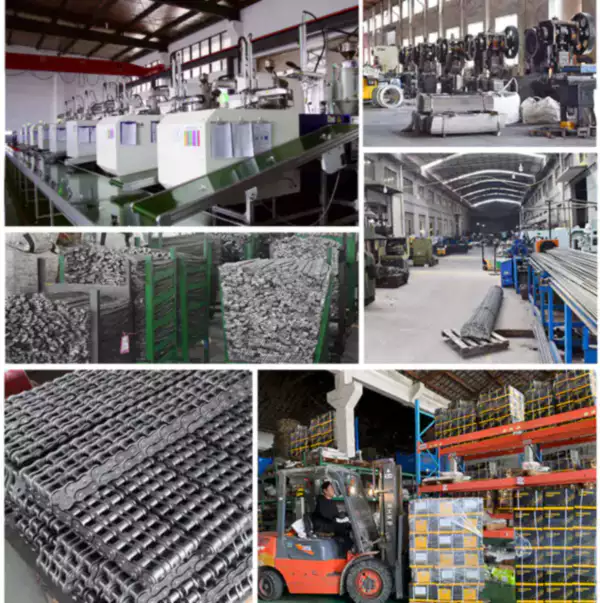Introduction
Gripper chain systems are widely used in various industries for material handling and conveying applications. These systems consist of gripper chains, sprockets, and other components that work together to provide a reliable and efficient solution for moving heavy loads. However, operating these systems requires specific knowledge and skills to ensure safety and optimal performance. In this article, we will explore the training requirements for operators of gripper chain systems and provide a comprehensive guide for purchasing gripper chains.
Training Requirements for Operators of Gripper Chain Systems
1. Basic Knowledge of Mechanical Systems
Operators of gripper chain systems should have a basic understanding of mechanical systems, including how they work and their components. This knowledge will enable them to identify potential issues and troubleshoot problems, ensuring that the system is running smoothly.
2. Safety Procedures
Safety is a critical aspect when operating gripper chain systems. Operators should be trained on safety procedures, including how to use personal protective equipment, how to handle heavy loads safely, and how to respond in case of emergencies.
3. Maintenance Procedures
Regular maintenance is essential for the optimal functioning of gripper chain systems. Operators should be trained on maintenance procedures, including how to perform basic maintenance tasks such as lubrication, cleaning, and inspection.
4. System Controls
Gripper chain systems often have complex control systems used to regulate speed, tension, and position. Operators should be trained on how to use these controls, including how to adjust them to suit different load sizes and types.
5. Load Calculation and Handling
Operators should be trained on how to calculate load weights and how to handle loads safely. This knowledge will help prevent accidents and ensure that loads are handled efficiently and effectively.
Gripper Chain Purchasing Guide
When purchasing gripper chains, several factors should be considered, including:
1. Chain Type
There are various types of gripper chains available, including roller chains, silent chains, flat-top chains, and more. The choice of chain type depends on the application requirements, load weight, and other factors.
2. Chain Size
The chain size must be selected based on the load weight, speed, and other factors. Choosing the correct size ensures optimal performance and prevents chain failure.
3. Material
Gripper chains are made from various materials, including steel, stainless steel, and plastic. The choice of material depends on the application requirements, environment, and budget.
4. Sprockets
Sprockets are an essential component of gripper chain systems and must be selected based on the chain type, size, and tooth number. Choosing the correct sprocket ensures optimal performance and prevents premature chain wear.
Sprockets for Gripper Chains
Sprockets are critical components of gripper chain systems and work together with gripper chains to provide reliable and efficient material handling solutions. Choosing the correct sprocket ensures optimal performance and prevents premature chain wear. At our company, we offer a wide range of sprockets that are compatible with various types and sizes of gripper chains.

Our Advantages
As a leading manufacturer of gripper chains, we offer several advantages to our customers, including:
- High-quality products
- Competitive pricing
- Fast delivery
- Customization options
- Excellent customer support

Q&A
Q: How do I know which gripper chain type to choose?
A: The choice of gripper chain type depends on several factors, including load weight, speed, and the environment. Our team can help you select the best chain type for your application.
Q: How often should I perform maintenance on my gripper chain system?
A: Regular maintenance is crucial for the optimal functioning of gripper chain systems. The frequency of maintenance depends on the system usage and the environment. We recommend performing maintenance at least once every six months.
Q: What is the maximum load weight that gripper chains can handle?
A: The maximum load weight that gripper chains can handle depends on the chain type, size, and material. Our team can help you select the best gripper chain for your application based on your load weight requirements.
Edited by Zqq.
